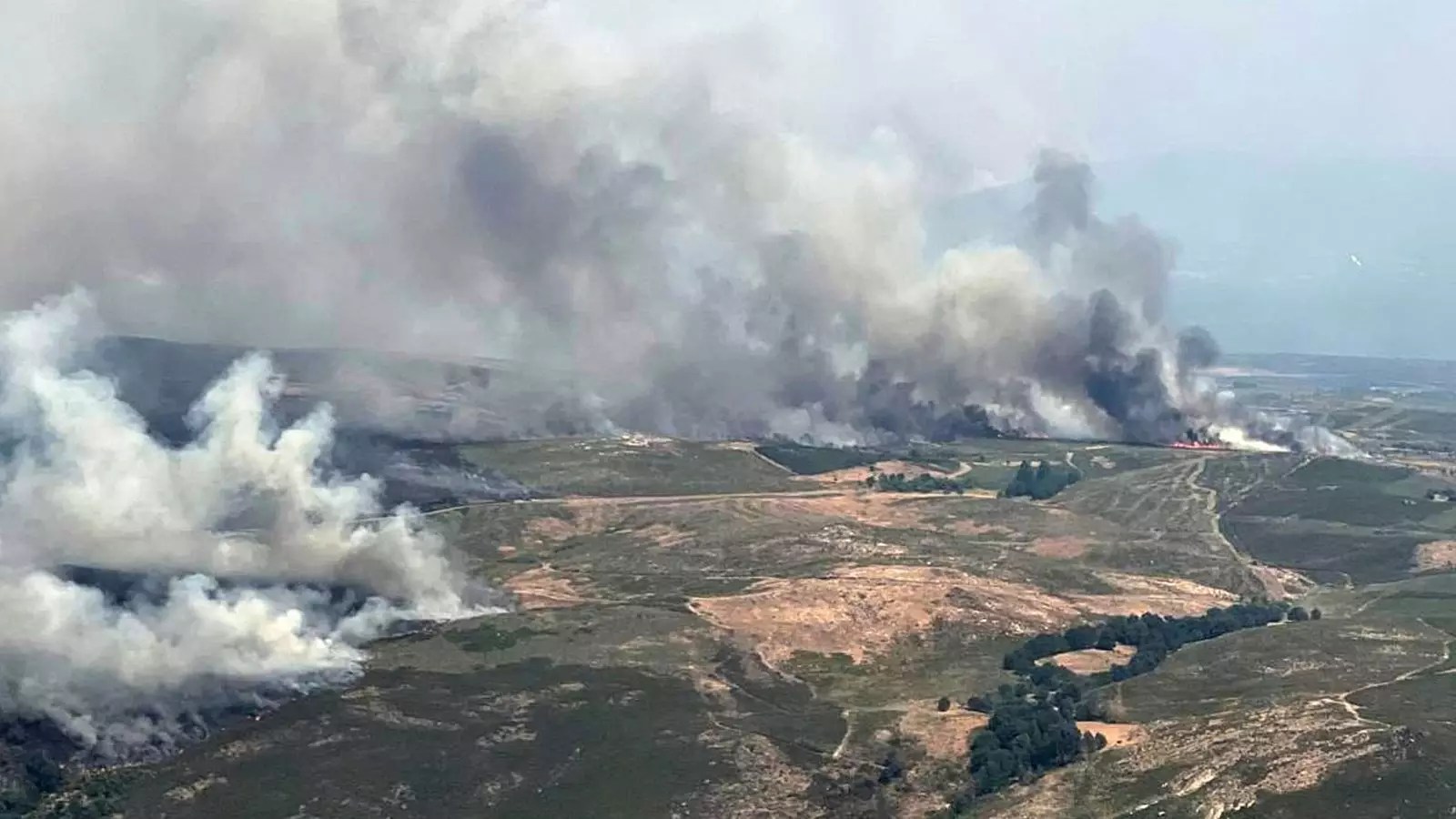The recent haze blanketing the UK, born from wildfires raging in Spain and Portugal, is more than just a visual spectacle or a fleeting atmospheric anomaly—it’s a stark reminder of the fragile cliff edge on which our climate system teeters. What might seem like an isolated weather event is, in reality, a symptom of a global crisis that demands urgent reflection and action. The prevailing narrative often downplays the interconnectedness of these phenomena, framing them as natural disasters that happen periodically. But the truth is far more unsettling. We are witnessing the manifestation of a climate system pushed to its breaking point, intensified by decades of reckless fossil fuel consumption and environmental neglect.
Despite the comforting notion that such events are “normal” and temporary, they reveal a disturbing trend: a world increasingly unmoored from its climatic equilibrium. The smoke-laden skies over Britain, tinged with vibrant hues from Rayleigh and Mie scattering, serve as atmospheric souvenirs—symbols of our collective failure to curb emissions and respect the delicate balance of natural processes. These changes are not just aesthetic anomalies but warnings from Mother Nature that the fabric of our environment is fraying.
The Politics of Apology and Inaction
In political circles, especially within centrist-liberal paradigms, there’s a recurring tendency to acknowledge climate issues with platitudes and half-measures. Leaders discuss the need for “sustainable development” and “green initiatives,” yet these words often mask a reluctance to implement substantial, transformative policies. This inertia is rooted in a delicate balancing act—public skepticism about costs, corporate influence, and political risk often outweigh the imperative for meaningful change.
This paradigm is inherently problematic. It fosters complacency, allowing the crisis to deepen under the guise of measured responses. When wildfires ravage Southern Europe or haze smothers the skies of the UK, the response too often centers on short-term relief rather than addressing the systemic culprits. This deflection perpetuates a cycle where climate impacts are seen as isolated incidents rather than symptoms of a malfunctioning global system.
The environmental crises faced today demand not only recognition but also courageous leadership that refuses to prioritize short-term economic gains over planetary health. Anything less is abdication of moral responsibility and an erosion of trust in institutions meant to protect the wellbeing of future generations.
Environmental Justice in a Warming World
The disproportionate impacts of climate-induced disasters highlight glaring issues of environmental justice. Countries in Southern Europe, the Middle East, and parts of Africa often bear the brunt of phenomena that are, in essence, global in cause. Yet, these regions contribute the least to the accumulation of greenhouse gases. Meanwhile, wealthier nations, including the UK, shield themselves behind technological buffers and policy buffers, failing to accept the ecological debt they owe.
This imbalance underscores a moral failing—an inability to reconcile the disparities in climate burden and responsibility. The wildfires’ devastation and the haze affecting distant skies serve as uncomfortable reminders that climate change is not merely an environmental issue but a profound social justice crisis. It challenges the notion that climate action is optional or that some populations can shield themselves from the consequences of the choices of others.
Therefore, a just response must prioritize equity—supporting vulnerable communities, funding disaster mitigation, and confronting the systemic inequalities that exacerbate climate hardships. Anything less entrenches injustice and prolongs suffering for those least responsible.
The Urgency of Systemic Transformation
The current climate crisis exposes the fundamental flaws in our economic and political frameworks. The rise in wildfire activity, droughts, and extreme weather cannot be divorced from our relentless pursuit of growth rooted in fossil fuel exploitation. Such systems operate on the premise that natural resources are infinite and that environmental costs are externalities—an inherently destructive ideology.
A genuine shift toward climate resilience requires more than superficial policies. It demands a systemic overhaul—redefining growth, reimagining energy production, and restoring ecosystems. This is not an optimistic call for utopian solutions but an imperative rooted in realism. Without holistic change, the smoke in the air and the heatwaves baking Europe are merely harbingers of worse to come.
The political willpower to enact these changes hinges on society’s capacity to recognize the gravity of the crisis and demand accountability. As skeptical as I am of superficial promises, I firmly believe that bold, comprehensive policy shifts are possible—if enough of us refuse to accept business-as-usual complacency. Only then can we hope to stabilize our climate and protect what remains of our natural world for generations to come.

